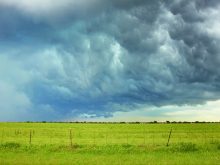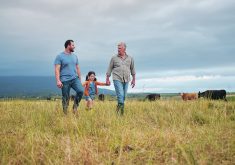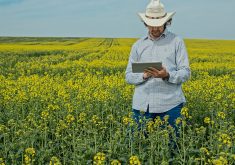Do you ever have an idea? Something that you think about, something that keeps coming back to you again and again, until you finally decide to do something about it and then put plans in place to make it a reality.
At its simplest form, this is strategy. The detail required in the planning (the strategy) depends a lot on factors such as the following:
- How much investment is required, both financial and your time and effort?
- How complex is the idea in the first place?
- How specific do you want or need to be at developing and implementing the plan?
- Who is or will be involved in the planning processes and in the implementation?
- How comfortable are you with risk?
Read Also

Proactive approach best bet with looming catastrophes
The Pan-Canadian Action Plan on African swine fever has been developed to avoid the worst case scenario — a total loss ofmarket access.
At a basic level, we all work from an orientation of strategy. What’s different is how we approach it.
Let’s assume that we’re discussing farms in Western Canada. They can be any size, sector or any location. It really doesn’t matter from a planning perspective.
I spend a lot of time talking to farm families about their plans for the future. Some farms take quite a formal approach to developing their plans and then purposefully using those plans to guide the implementation of what they do on a month-by-month, season-by-season or year-by-year basis. They test progress made, or often not made, against the plan and make adjustments accordingly. This approach would fall into the category of how it should be done.
However, most farms apply a much less-formalized approach to their planning, but still work from a foundation of strategy.
This does not, in my opinion, necessarily mean that they won’t be any less successful. I do think, though, that the likelihood of achieving successful outcomes is significantly enhanced with a more formal approach to strategy and planning.
A pause in the action
There are times when the best strategy is simply to pause. I think the benefit that can arise from a pause in the action will potentially be greater if the decision to pause is something a farm family actively chooses to do, rather than the situation where something has happened or some circumstances have arisen that have mandated a need to pause. It’s important to note that the factors warranting a pause in the pursuit of a farm family’s strategy do not necessarily have to have negative connotations.
There can be different reasons why sometimes the best action is to take no action.
First and foremost, it may be necessary to assess what’s going on around us. An enormous amount of change is happening. In fact, there’s a saying: “The only thing that is constant is change.” We’ve been living in this reality for a long time because that saying is first attributed to Heraclitus, a Greek philosopher from 500 BC. I suspect, though, that in the 21st century, it’s somewhat accelerated. It applies to the environments in which farm families own and manage their businesses.
It can be beneficial to longer-term outcomes to take time and assess the changes that are happening that will, or may in the future, impact farms and farm families.
Another reason would be to critically review the plan, as formal as it is, to make sure it is still the best plan to move forward. This is where you would evaluate alternatives and test them against the original plan. It can be difficult to find the time and resources to do this when everyone is going hair-straight-back at 100 m.p.h. forward. If we never pause to stick our head up, there’s the real likelihood that opportunities or, maybe worse, troubling signs can be missed — the black swans that can arise seemingly out of nowhere.
Other factors such as weather patterns, markets, demographics and consumer preferences, global trade, politics and government policies and regulations can all be reasons why a pause might be a good tactic. There potentially is a long list. What’s important is how all this applies to any specific farm business and family at any given point of time.
It’s not easy to pause, though. One of the most difficult things to do can be to just say “no,” or “not now.” This I find can be especially difficult for new farm entrants. My observations are that, in situations where there’s a pause, it feels for them as if things are slipping away or that they’re not getting ahead fast enough.
A pause in the plan can appear to be a step backward when it may be a step sideways, allowing the family and business to position itself for the next step forward.
Terry Betker, P.Ag, is a farm management consultant based in Winnipeg. He can be reached at 204-782-8200 or terry.betker@backswath.com.

















